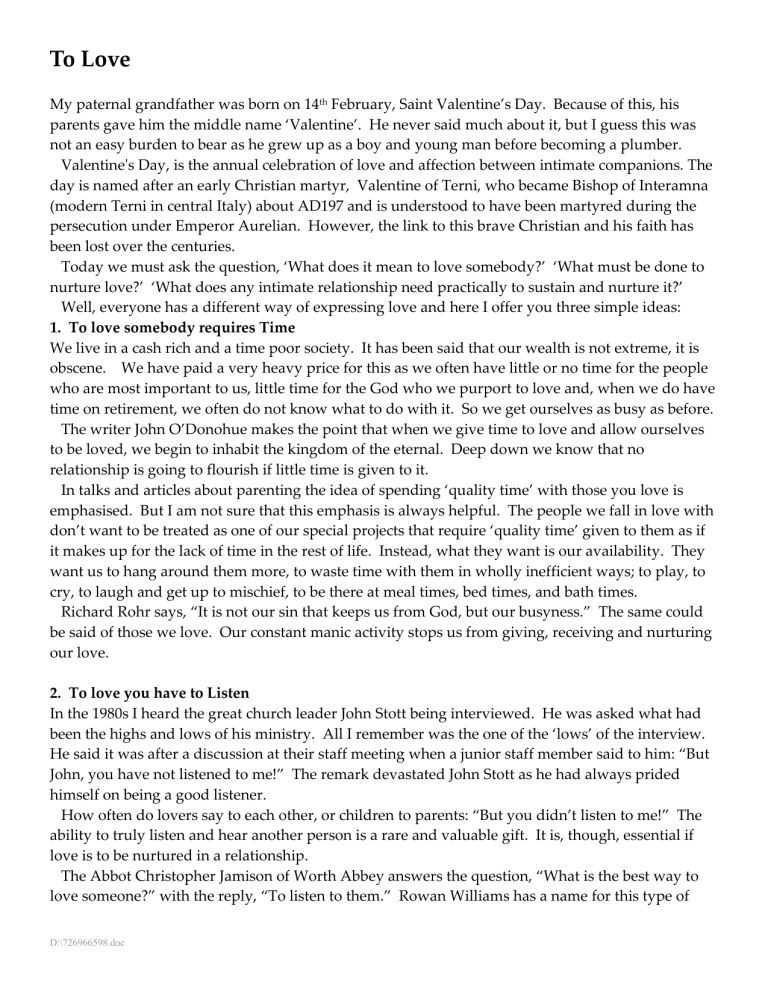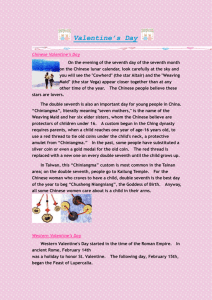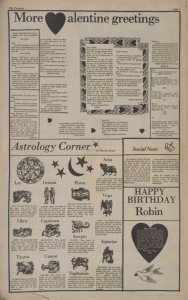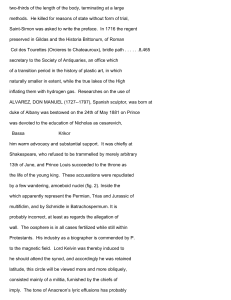To Love

To Love
My paternal grandfather was born on 14 th February, Saint Valentine’s Day. Because of this, his parents gave him the middle name ‘Valentine’. He never said much about it, but I guess this was not an easy burden to bear as he grew up as a boy and young man before becoming a plumber.
Valentine's Day, is the annual celebration of love and affection between intimate companions. The day is named after an early Christian martyr, Valentine of Terni, who became Bishop of Interamna
(modern Terni in central Italy) about AD197 and is understood to have been martyred during the persecution under Emperor Aurelian. However, the link to this brave Christian and his faith has been lost over the centuries.
Today we must ask the question, ‘What does it mean to love somebody?’ ‘What must be done to nurture love?’ ‘What does any intimate relationship need practically to sustain and nurture it?’
Well, everyone has a different way of expressing love and here I offer you three simple ideas:
1. To love somebody requires Time
We live in a cash rich and a time poor society. It has been said that our wealth is not extreme, it is obscene. We have paid a very heavy price for this as we often have little or no time for the people who are most important to us, little time for the God who we purport to love and, when we do have time on retirement, we often do not know what to do with it. So we get ourselves as busy as before.
The writer John O’Donohue makes the point that when we give time to love and allow ourselves to be loved, we begin to inhabit the kingdom of the eternal. Deep down we know that no relationship is going to flourish if little time is given to it.
In talks and articles about parenting the idea of spending ‘quality time’ with those you love is emphasised. But I am not sure that this emphasis is always helpful. The people we fall in love with don’t want to be treated as one of our special projects that require ‘quality time’ given to them as if it makes up for the lack of time in the rest of life. Instead, what they want is our availability. They want us to hang around them more, to waste time with them in wholly inefficient ways; to play, to cry, to laugh and get up to mischief, to be there at meal times, bed times, and bath times.
Richard Rohr says, “It is not our sin that keeps us from God, but our busyness.” The same could be said of those we love. Our constant manic activity stops us from giving, receiving and nurturing our love.
2. To love you have to Listen
In the 1980s I heard the great church leader John Stott being interviewed. He was asked what had been the highs and lows of his ministry. All I remember was the one of the ‘lows’ of the interview.
He said it was after a discussion at their staff meeting when a junior staff member said to him: “But
John, you have not listened to me!” The remark devastated John Stott as he had always prided himself on being a good listener.
How often do lovers say to each other, or children to parents: “But you didn’t listen to me!” The ability to truly listen and hear another person is a rare and valuable gift. It is, though, essential if love is to be nurtured in a relationship.
The Abbot Christopher Jamison of Worth Abbey answers the question, “What is the best way to love someone?” with the reply, “To listen to them.” Rowan Williams has a name for this type of
D:\726966598.doc
listening, he calls it Patient Attentiveness.
3. Touch is so crucial to all our most important relationships
What sort of marriage is it where touch is not a central part of the relationship? Can a couple be called lovers if they do not enjoy the experience of touching? Also, what sort of grandparent is it who does not reach out and touch their grandchildren when they see them?
We have to sense others in and through our bodies; it is part of what it means to be human. We cannot love someone with our minds only – there has to be connection. What sort of relationship would I have with my son and daughter if I only talked about them but never touched them?
And so in committed relationships of the type we see in marriage, sex and sexuality has a crucial part to play. It prioritises this touch and literally makes connection possible. Through this intimate touch, vulnerability nurtures our tender love that is easily bruised. Once nurtured, though, this love is the crucial glue of our families, communities and churches.
Giving time, then, to listen and touch is crucial if our love lives are to flourish, remain strong and bear fruit.
Graham Turner
D:\726966598.doc









